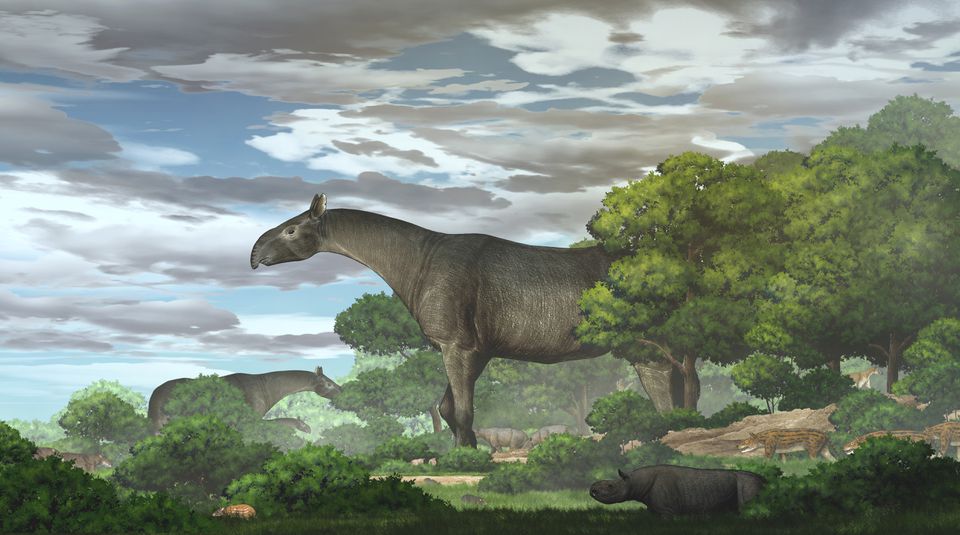
Fossils found in northwest China's Gansu province indicate a new species of giant rhino that lived more than 26 million years ago, according to a paper published in the journal Communications Biology on Thursday.
Fossils found in northwest China's Gansu province indicate a new species of giant rhino that lived more than 26 million years ago, according to a paper published in the journal Communications Biology on Thursday.
 |
| Paraceratherium linxiaense giant rhinos in the Linxia Basin during the Oligocene are seen in this handout rendering provided by the Institute of Vertebrate Paleontology and Paleoanthropology (IVPP) of the Chinese Academy of Sciences June 18, 2021. |
The fossils including a skull and two vertebrae found in the reddish-brown sandstone of the Linxia basin shed light on how the ancient rhinos, some of the largest land mammals ever, evolved and moved across what is now Asia.
The dispersal of giant rhino fossils - others have been found on the far side of the Himalayas in Pakistan - indicate "Tibet, as a plateau, did not yet exist and was not yet a barrier to exchange of largest land mammals," the paper said.
Giant rhinos like the newly discovered species, named Paraceratherium linxiaense, were hornless, long-necked herbivores, perhaps weighing 20 tonnes - equal to several elephants - and likely living in open woodland.
(Source: Reuters)





